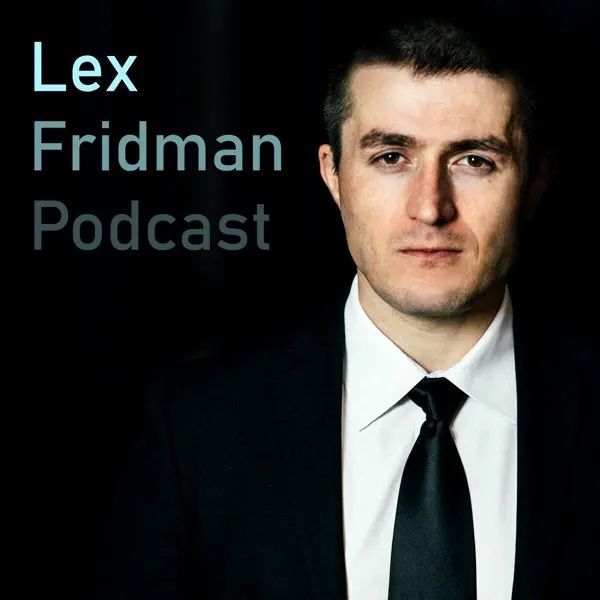Lex sits with Douglas Murray, author and political commentator, and dives into pivotal global conflicts including Ukraine and the Israel-Palestine situation. Murray discusses the nuances of leadership under duress, particularly around Zelenskyy's challenges amidst war. The conversation critiques misinformation in media narratives and explores the implications of Hamas' ideology on the humanitarian crisis in Gaza. Murray also reflects on the moral complexities of violence and the historical roots of anti-Semitism, providing thought-provoking insights on the chaos of contemporary geopolitics.
War in Ukraine
The war in Ukraine led off this deep geopolitical discussion with Douglass Murray. Murray reflects on his visits to the region since Russia’s invasion on February 24, 2022. He highlights the profound human element, expressing admiration for Ukrainian soldiers defending their homeland. Murray notes the initial optimism among Ukrainians in late 2022, believing they could reclaim all territories, including Crimea, an ambition he considered overly ambitious even then. By his more recent visits, he observes a shift to exhaustion and a fading certainty of victory after three years of conflict. Murray has often lauded Zelensky and the Ukranian effort and stands firmly in the Ukranian camp and is of the mind that the west should continue to rally around the defense effort there. Murray was profoundly disappointed by the Zelensky - Trump meeting at the White House. While appalled at the scene, Murray believes that Zelensky didn’t play the game properly. Zelensky could have leveraged Trump’s ego to foster progress if he just kept his mouth shut to the press.
Putin and Russia
Murray offers a scathing critique of Vladimir Putin, depicting him as a repressive dictator intent on reconstituting the Soviet Union through actions in Ukraine and Georgia. He details Putin’s suppression of opposition, use of weapons of mass destruction abroad, and fraudulent elections. He rejects the notion of genuine popular support for Putin within Russia. The discussion explores Putin’s empire-building motives, with Murray skeptical of any ceasefire durability; in fact, he predicts resumed Russian aggression post-Trump.
Israel-Palestine Conflict
The Israel-Palestine conflict is vividly recounted and Murray tells astonishingly detailed stories about the horrors of October 7, 2023, Hamas attack. Murray details the intelligence and military failures, attributing them to a misconception that Hamas prioritized corruption over ideology. But to this reviewer it was his description of the chaos that day, including Hamas’s use of disguised operatives and ability to push 20 km into Israel as one of the highlights of the episode. He describes the conflict’s brutality and the strategic miscalculations that enabled such a devastating breach, setting the stage for Israel’s robust response. Murray’s passionate defense of the Israeli position is notable.
“One of the reasons why you need to go and see things with your own eyes is because people are certain to tell you that what you see with your own eyes didn’t happen.” - Douglas Murray
Hamas and Corruption
Murray portrays Hamas as a corrupt, ideologically driven entity, its leaders amassing billions while militarizing Gaza with resources meant for civilians. He outlines their use of tunnels and civilian infrastructure for terror, not welfare, reflecting a deep moral corruption that betrays the Palestinian people. Elected in 2006, Hamas radicalized Gaza’s youth over 18 years, prioritizing Israel’s destruction over state-building. Murray details the dual tragedy of personal enrichment (Hamas leaders were billionaires) and societal indoctrination, perpetuating conflict at the expense of Gaza’s potential prosperity.
Responsibility of Palestinians
The conversation explores the Palestinians’ responsibility for electing Hamas, with Murray asserting that this choice endorsed its genocidal agenda, evidenced by celebrations of the October 7 attacks. He tells stories about regular Hamas citizens celebrating the death of young Jewish girls and the pride that young Hamas civilians took in joining the fight and killing Jews along-side Hamas. Fridman counters that such reactions might stem from desperation or indoctrination rather than inherent evil, highlighting the complexity of collective accountability. There is tension between agency and circumstance; however, is how much does a populace bears the burden of its leadership’s actions in a constrained environment. The Israeli - Hamas conflict raises that exact question.
Antisemitism
The duo broadens out and dives into the resurgence of antisemitism post-October 7, with Murray citing historical and psychological roots as to why Jews have been a convenient scapegoat for societal woes. He invokes Vasily Grossman’s insight that antisemitism reflects the accuser’s flaws, noting global protests against Israel, not Hamas, as indicative of this bias. He points out that NYC (one of the most liberal cities in the US) where BLM and women’s marches have been prevalent, doesn’t see the hypocrisy in celebrating Palestinian rapists and murders the day after October 7th. Fridman observes the traction that antisemitism seems to getting along. He does wonder if for most its trolling, or really the deeper hatred.
Conclusion
Murray is always articulate using his classic British style and profound vocabulary to force his points. Fridman presents more as a petulant college student who is perpetually irritated by politics calling it “dumb” repeatedly. Murray elegantly talks about “wading your way through the memes” and almost everything he says smacks with a heavy handed does of authority, knowledge and a harsh grace. His firsthand accounts ground the conversation in stark reality, while Fridman’s probing fosters a nuanced exploration of morality and responsibility. It was an excellent listen, IF you haven’t had enough of these two conflicts.
THE PODSCORE: 4 (out of 5) MICS
